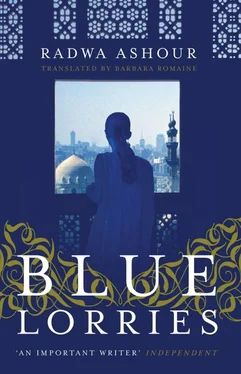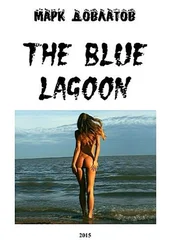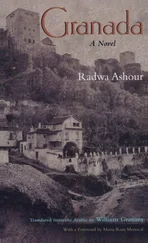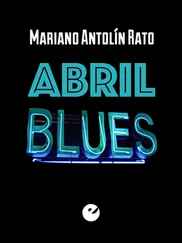We stood in front of the university buildings, which were tranquil now, but in my imagination, and in Gérard’s words, they were crowded with demonstrators and police, vivid with slogans and banners.
‘I’ll show you where traces of the battles can still be seen.’
We headed toward Rue Gay-Lussac.
Gérard went on at length, as we walked along the boulevard, and in the succeeding days, telling me about the battles that had taken place in this street on ‘Bloody Monday’. He would talk about the violence of the police, the students’ resistance, how many were wounded on both sides, and how many arrested. I would see with my own eyes some of the slogans scrawled on the walls: ‘Let our comrades go!’ ‘Down with the police state!’ ‘Down with capitalist society!’ ‘Long live the workers’ assemblies!’ Out of the dozens of slogans, there were three, written in heavy black marker on the walls of one of the buildings, that would bring me to a halt. One of them said: ‘Be realistic — demand the impossible!’ The second: ‘Let us form committees for dreams!’ The third: ‘When they test you, answer with questions!’ (Later I would write them on the walls of my room in Cairo, and beside them I would hang the two posters Gérard gave me.) Also in rue Gay-Lussac I could see the shredded remains of posters, or spread-open pages from the newspapers, impossible to read because of the plethora of comments appended to them in red, green, and blue ink, in the margins and between the lines; I also noted that parts of the street had been picked clean of stones.
Gérard continued his story, moving from Nanterre to Paris and from Paris to Nantes, then returning to Paris, and from there to the Renault factories at Billancourt. He told me, ‘The students said…’ ‘The workers said…’ ‘The students did this…’ ‘The workers did that…’ I paid close attention, but when the moment came for me to ask questions, I was so afraid of sounding stupid that I held back.
I didn’t notice that we had been walking for hours on end until Gérard said, ‘It’s four o’clock — aren’t you hungry? I’m really thirsty.’
We took a road that delivered us to a broad avenue called rue des Ecoles. (I liked the name, and years later, on subsequent visits to Paris, I would be intent on staying in one of the hotels on this street, because I liked the name and because the memory of that day had stayed with me, recalling that nice boy I liked so much, who had conducted me of his own accord to a realm of knowledge that would change many things in my life, at least for some years to come.)
In the rue des Ecoles, we sat in a café and ordered juice and sandwiches.
I went home to my mother flying high, full of stories and questions. I questioned her, and she filled me in on some of the details, telling me where she had been, what she had heard, and what she had done. (I was surprised to learn that she had taken part in the strike.) I asked her about all those points on which I had wanted to question Gérard, but refrained, for fear of appearing ignorant in his eyes: the locations of certain streets and squares, certain people, and letters I knew were initials standing for the names of organisations or guilds or societies, but I didn’t know what they meant or what they represented. I asked, she replied, and then she brought me a map of Paris and pointed out places. ‘This is the river,’ she said, ‘and here’s the Place de la République, where the main part of the demonstration started out, on Monday the thirteenth of May. And here, on the other side of the river, is the Latin Quarter. This is the Sorbonne’ — with her finger she pointed to the location of the university, to the west of the Latin Quarter. She moved her finger farther, then stopped and said, ‘Here at the southeastern edge is the Censier Centre, the new building of the University College of Humanities, where the pamphlets were prepared and printed. And this is rue des Ecoles, where you were.’
When I told her ‘good night’, she kissed me with a smile that seemed somehow odd to me, saying, ‘You’ve grown up, Nada, and — lo and behold — you’re interested in politics!’ She didn’t say ‘like your father’, but I now believe that the way she smiled had something to do with the words that would have completed her sentence. I finished the sentence for myself years afterward, when she told me that, not quite two decades before the summer of 1968, she had accompanied my father, recently arrived in the city, through the streets of Paris, in order to show him places connected with the soldiers of the German occupation and with the French resistance; and that, some weeks before our reunion, she herself had taken part in the momentous events of Paris.
At the time I didn’t understand my mother’s smile, and the only part of what she said that struck me was that I had become interested in politics, since it hadn’t occurred to me, as I listened to Gérard’s fascinating stories, that he was talking about politics. Despite what I heard that day, and over successive days, of battles, and of people injured and killed and arrested, of house raids, of truncheons, tear-gas, smoke bombs, stones, and barricades, the events seemed more like an exciting film than reality.
Two months into my stay in Paris, I knew to the day and the hour the details of the events of May, the student demonstrations, the street battles, the strikes by the workers at the Renault factory and other industrial sites, the positions of the guilds and the workers’ unions, what was said and done by the president of the university, the Minister of Education, the Minister of the Interior, and the municipal chief of police. It was as if I was a diligent student registered in an intensive academic programme, deriving from it the utmost possible benefit.
I had Gérard to thank for this, my first friend, and perhaps the first young man I became fond of, without realising that this fondness was known as ‘love’. Maybe after all it wasn’t love, but interest and admiration that came close to bedazzlement. I wanted to be with him, I looked forward to it, and I prepared for it; then when we were together I didn’t notice the time passing. He was a tall and slender young man, with rather coarse hair — or maybe it seemed coarse because he left it unkempt. He generally wore the same trousers and jacket, and a pair of athletic shoes. He was seventeen, or thereabouts. I said to him, ‘In two months I’ll be sixteen.’ (I lied, so that he wouldn’t think of me as much younger than he was.) I remember the places where he brought me, I remember the sound of his voice. I remember him telling his story, but I no longer remember his face in any detail, perhaps because I was too shy to look him in the eye or to keep gazing at him while he was talking. My glances at him were always furtive, as if stolen.
Everything Gérard told me was exciting — it stimulated my imagination. The most inspiring scenario of all was his account of what happened at the university after the takeover. The university gates were wide open to whoever might wish to enter. There were heavily attended lectures reviewing consumer society, organised resistance, self-governance, repression, imperialism, ideology and the tactics of disinformation. And in the large auditorium every night, thousands gathered to assess the events of the day and their performance. The dimly-lit corridors of the ancient building were suddenly illuminated with colours and posters and slogans. A photographic exhibition on the night of the barricades. Groups like a beehive whose every cell was busy working on an assignment, gathering its materials and researching the details, one group working on police brutality, a second studying an alternative to the examination system, a third looking into academic freedom, and a fourth, a fifth, a sixth… In the university courtyard, where the banners flutter and the young people gather in a circle for discussion and to exchange the writings and pamphlets of their organisations, a piano suddenly appears, on which anyone who wishes and who knows how to play may take a turn.
Читать дальше











